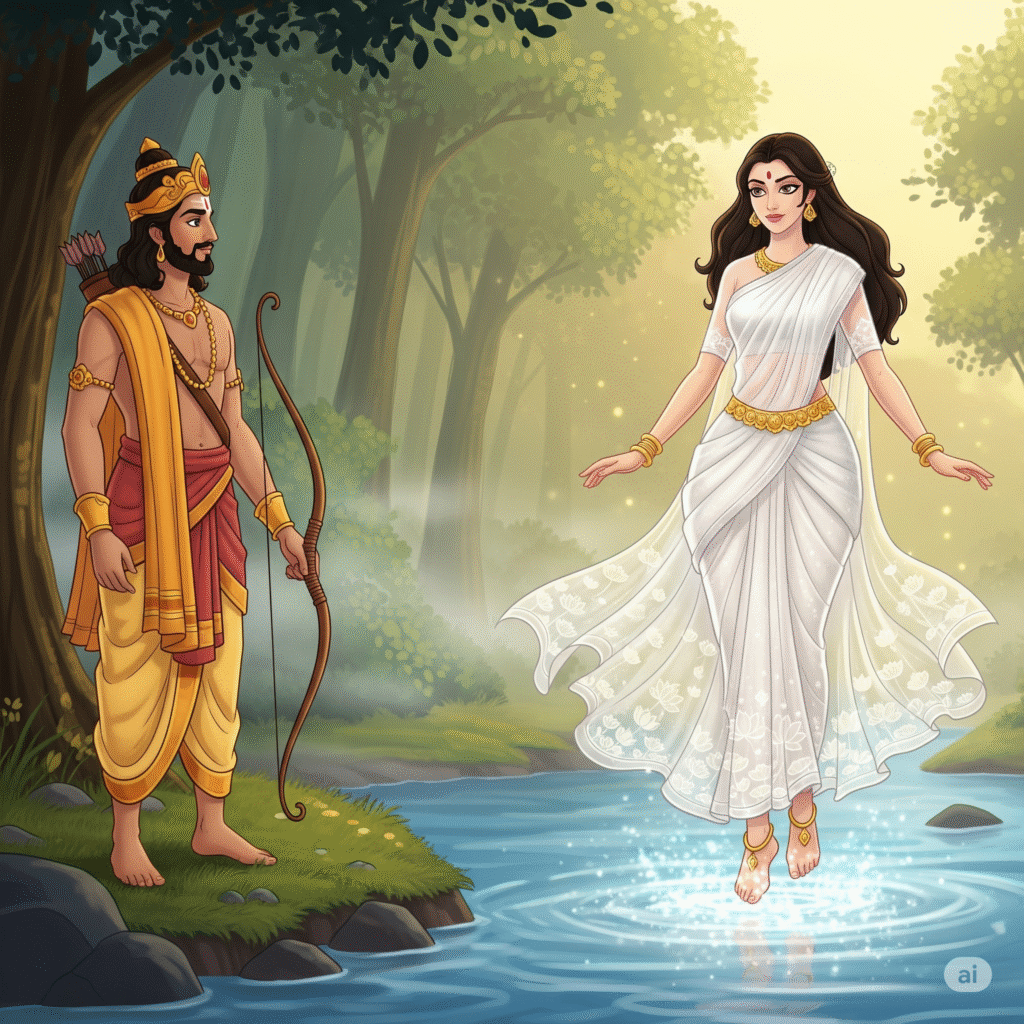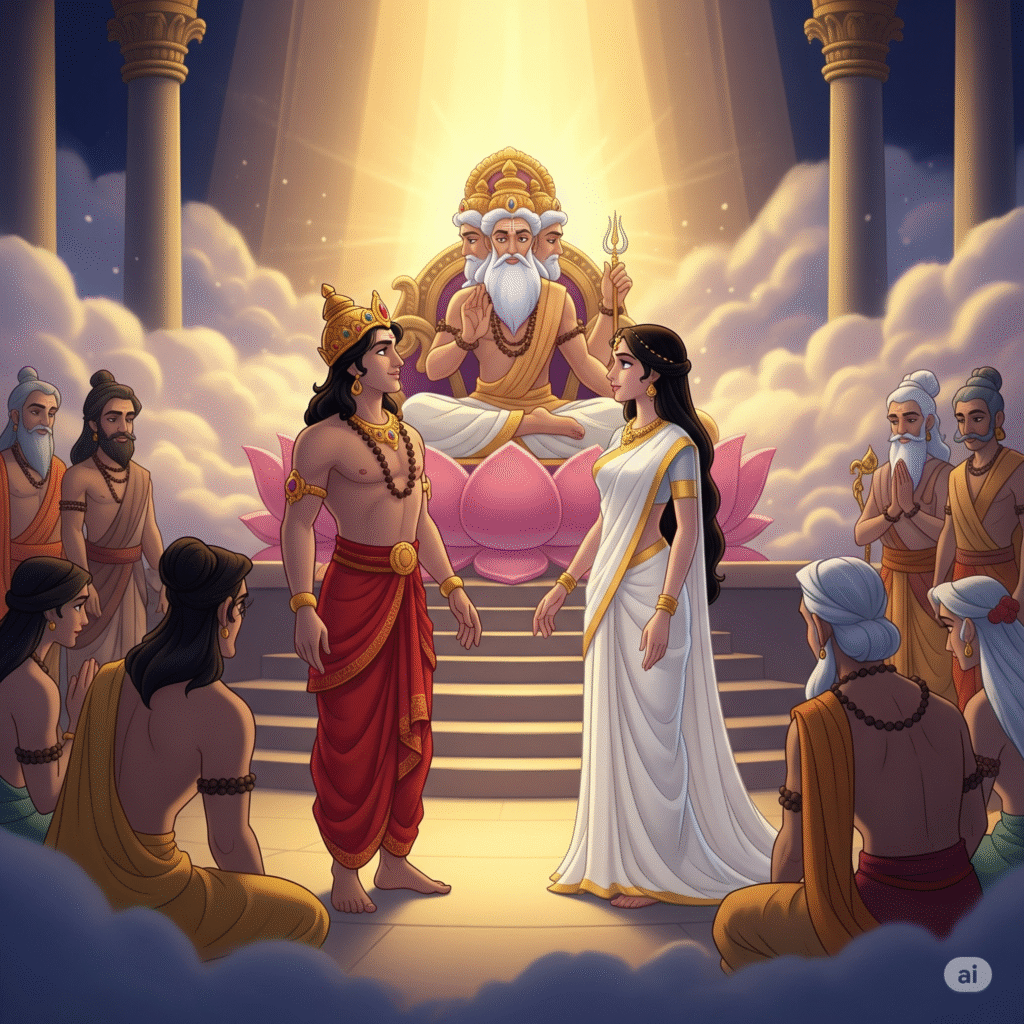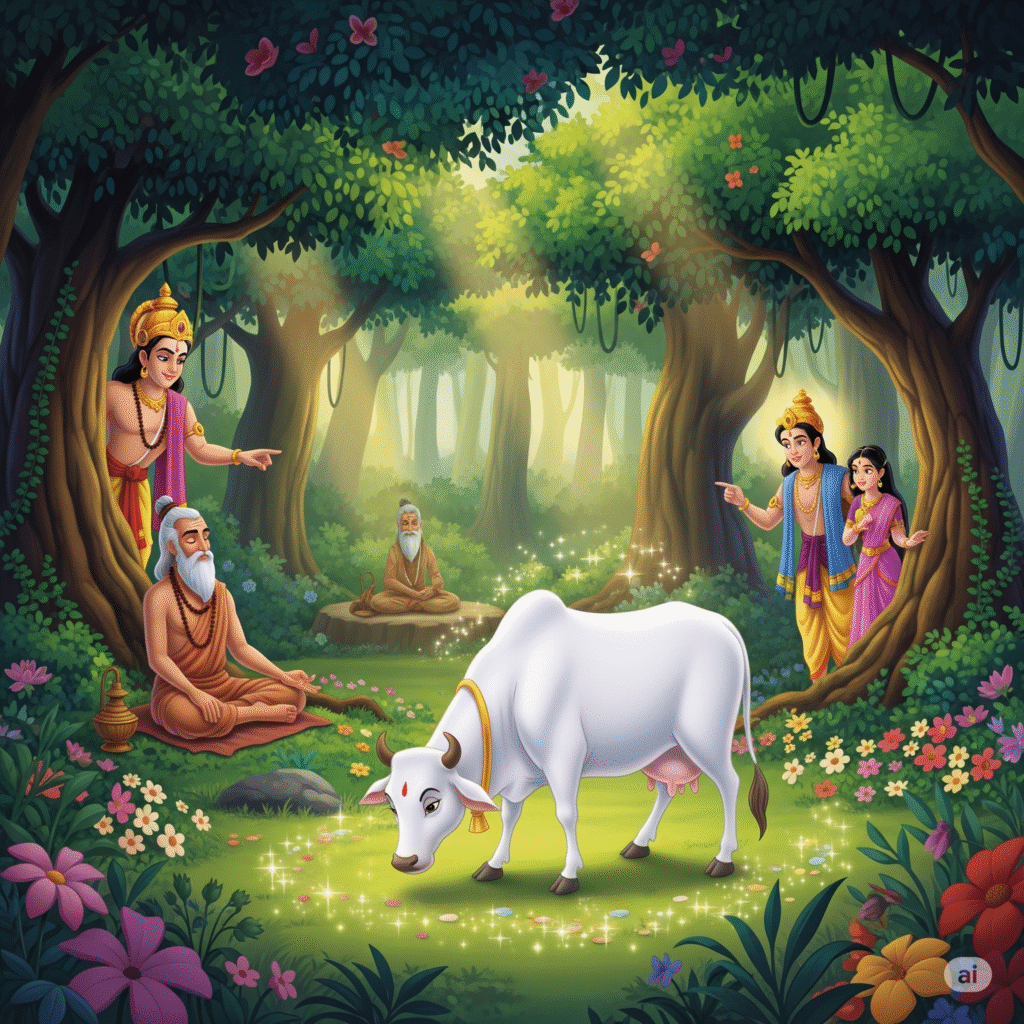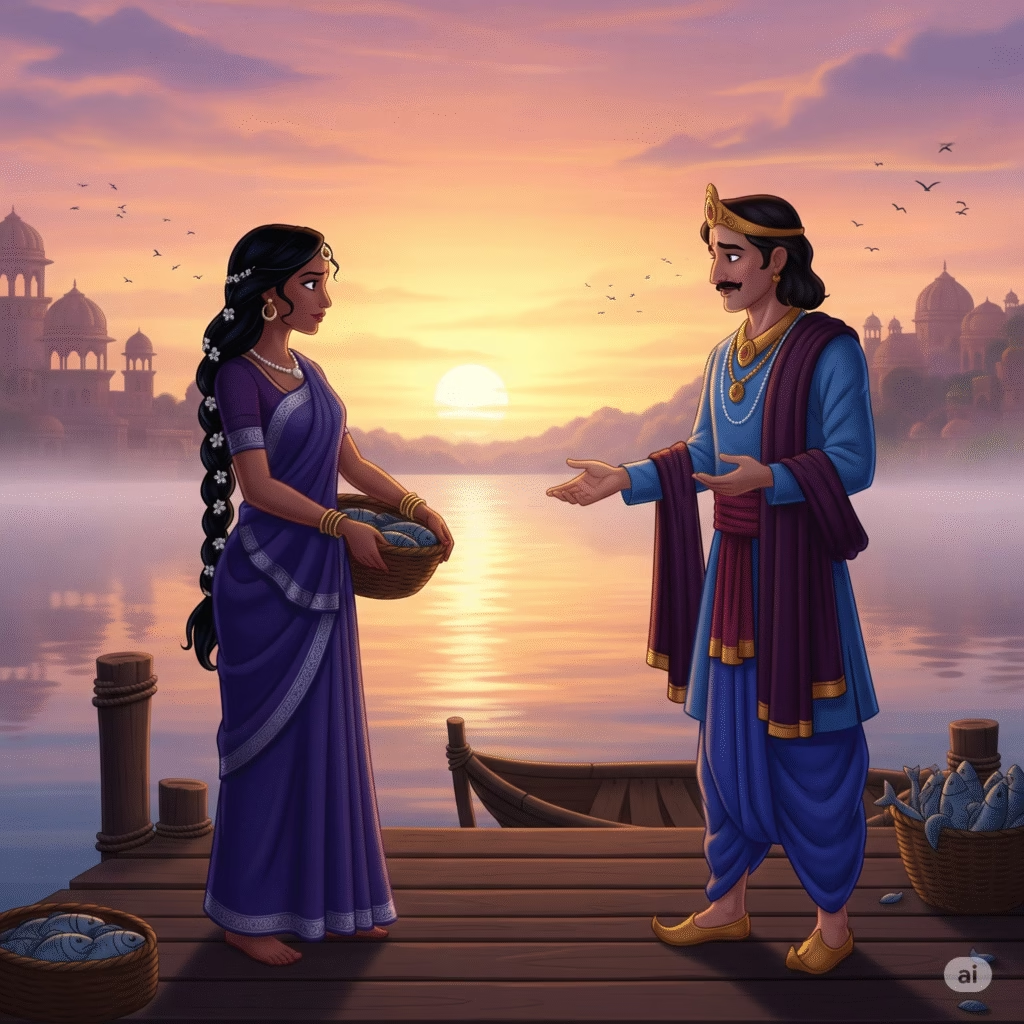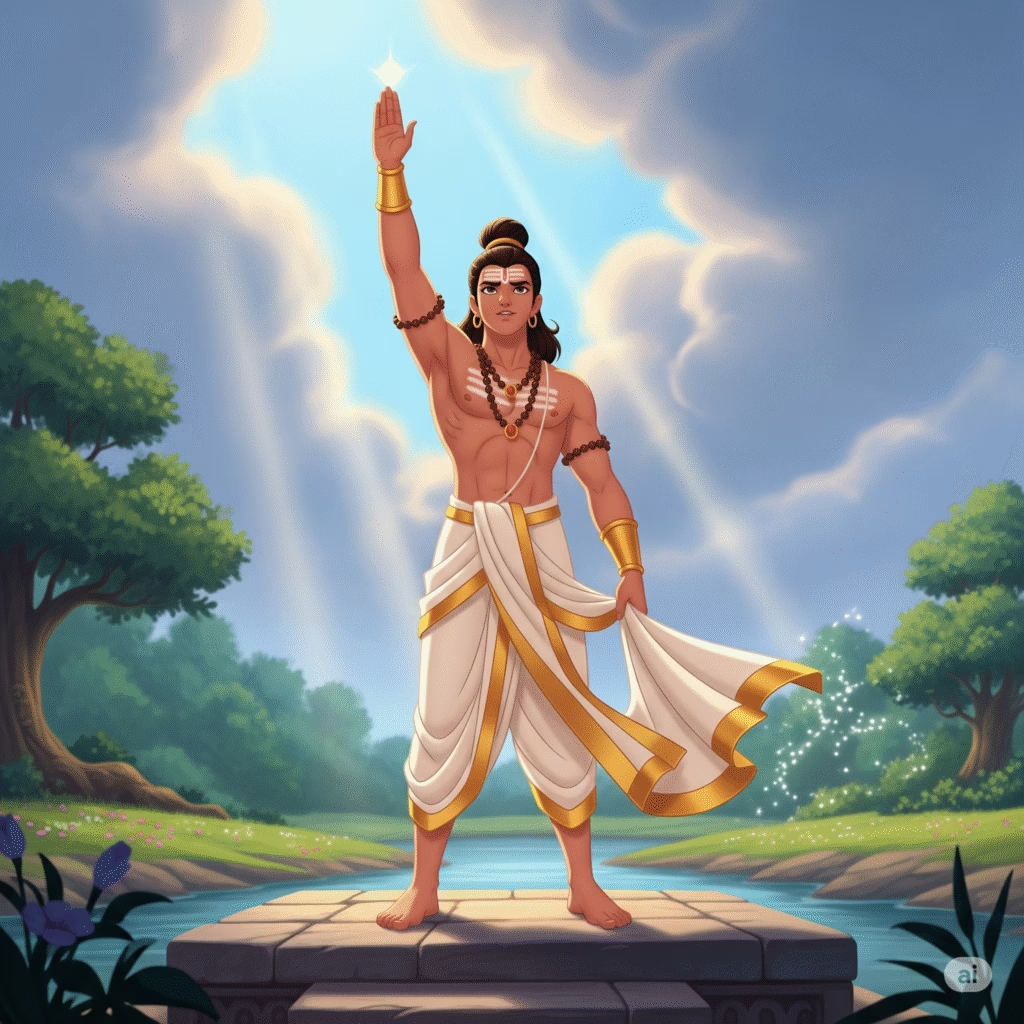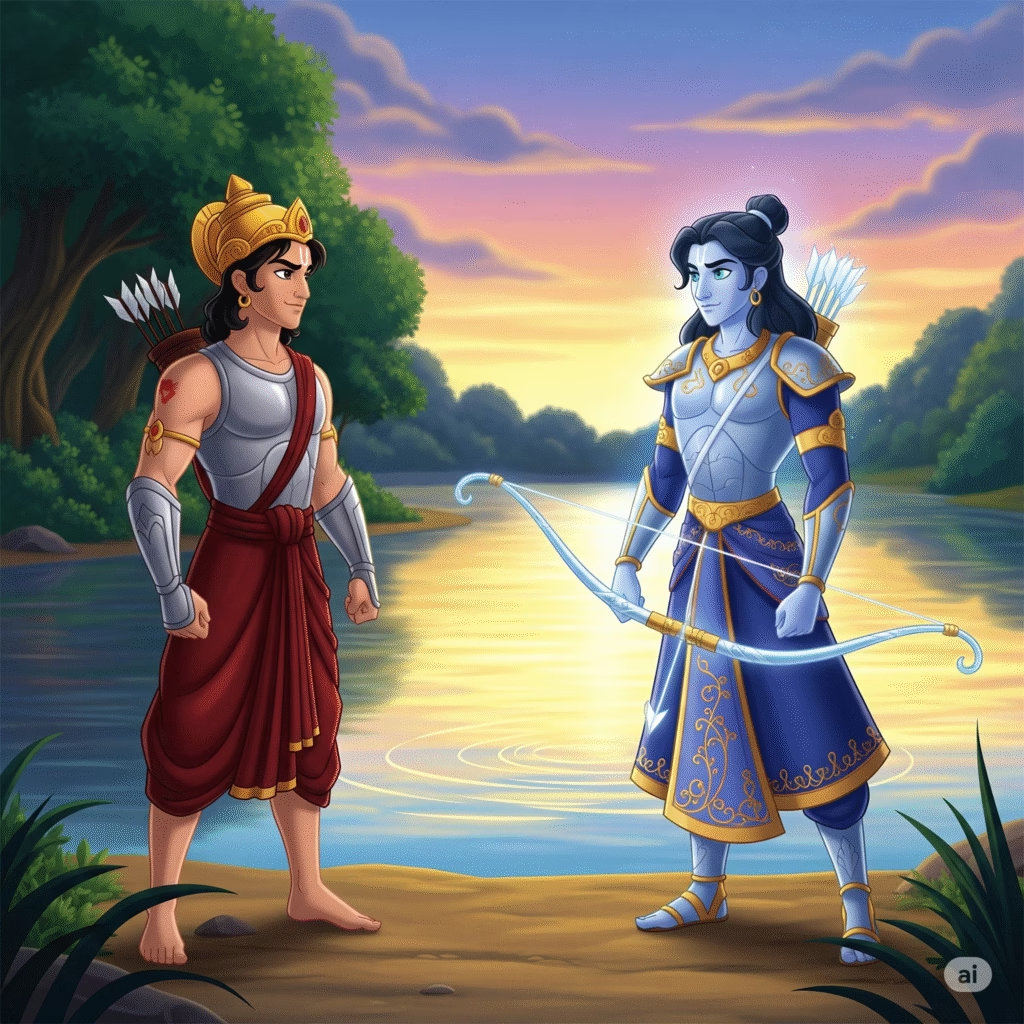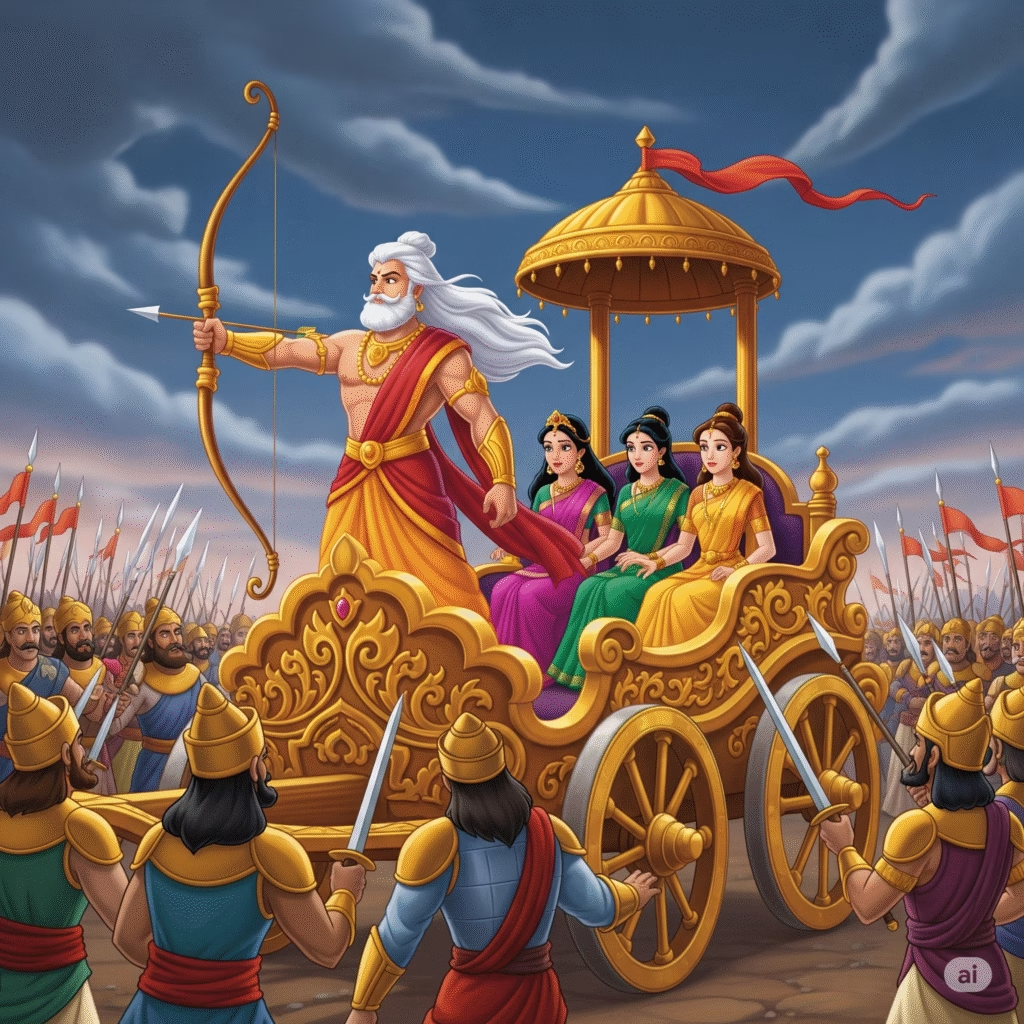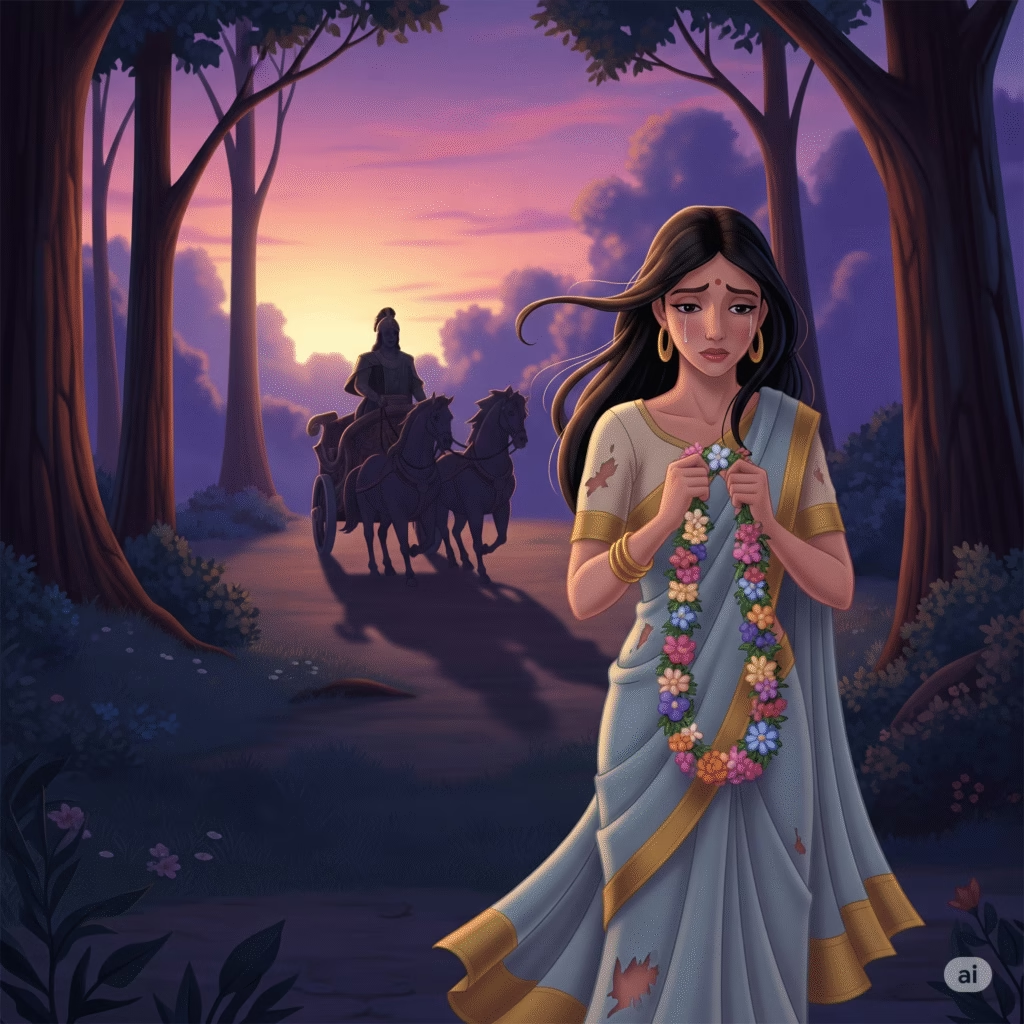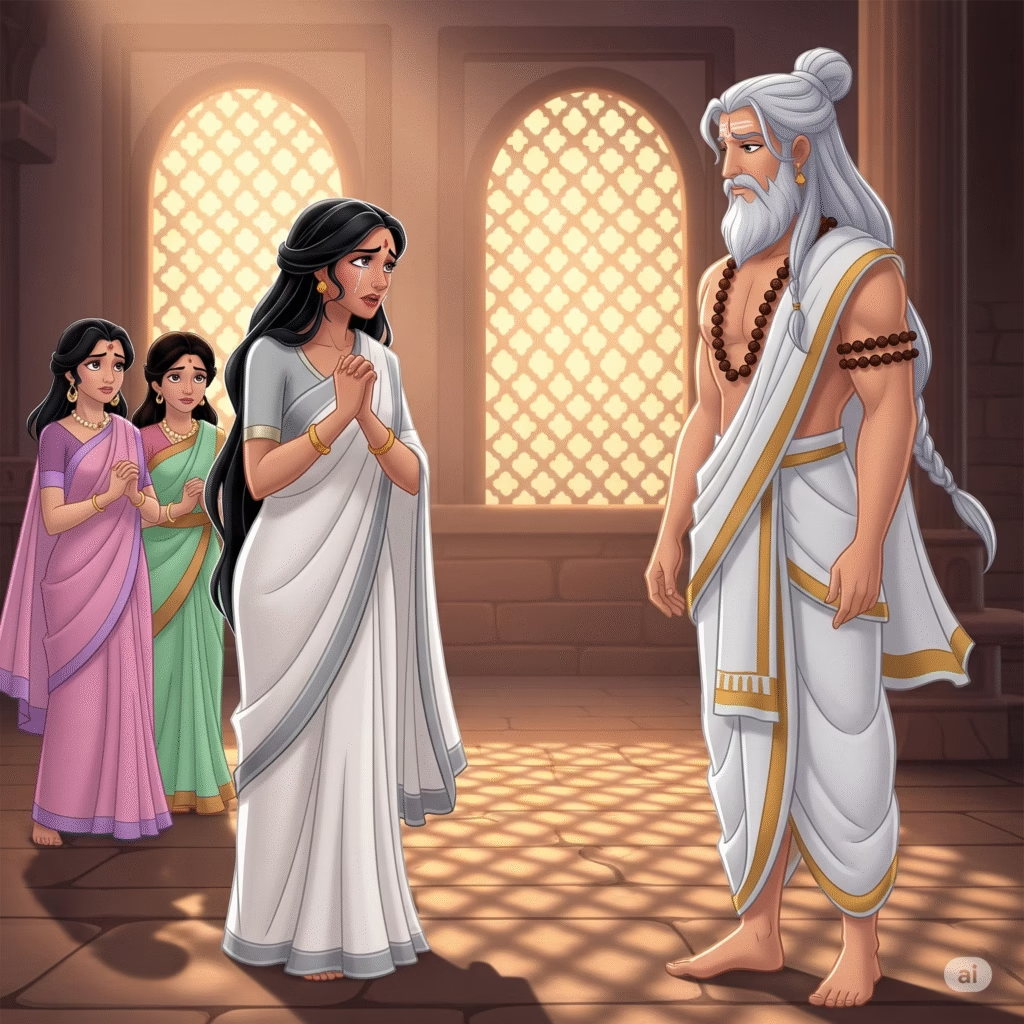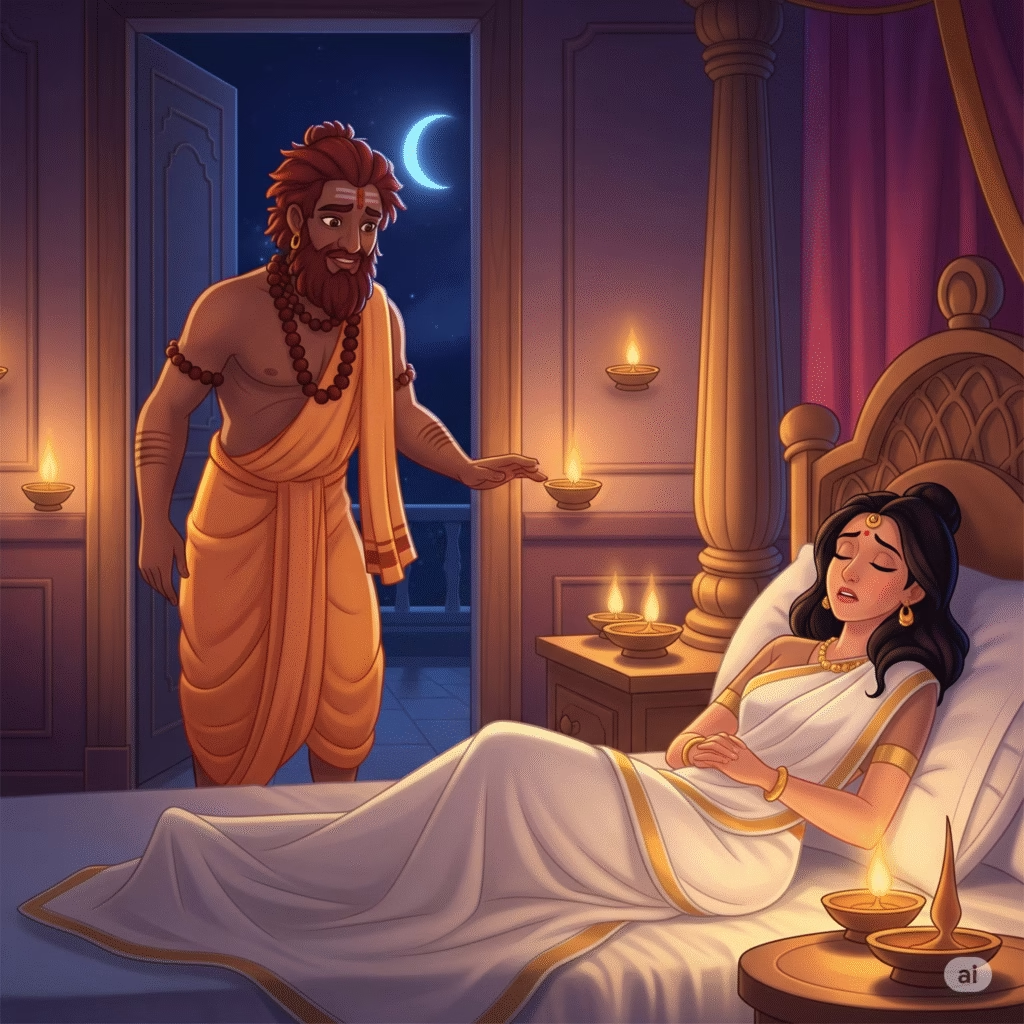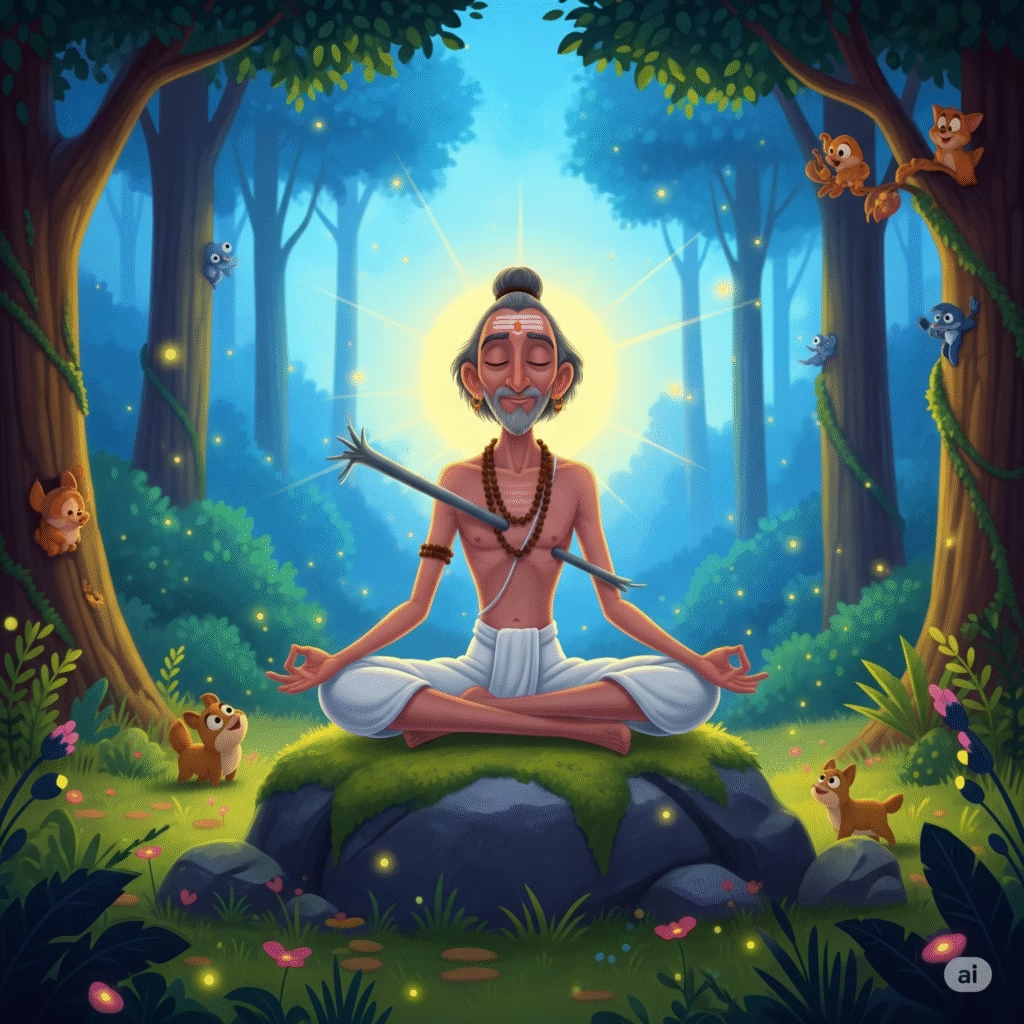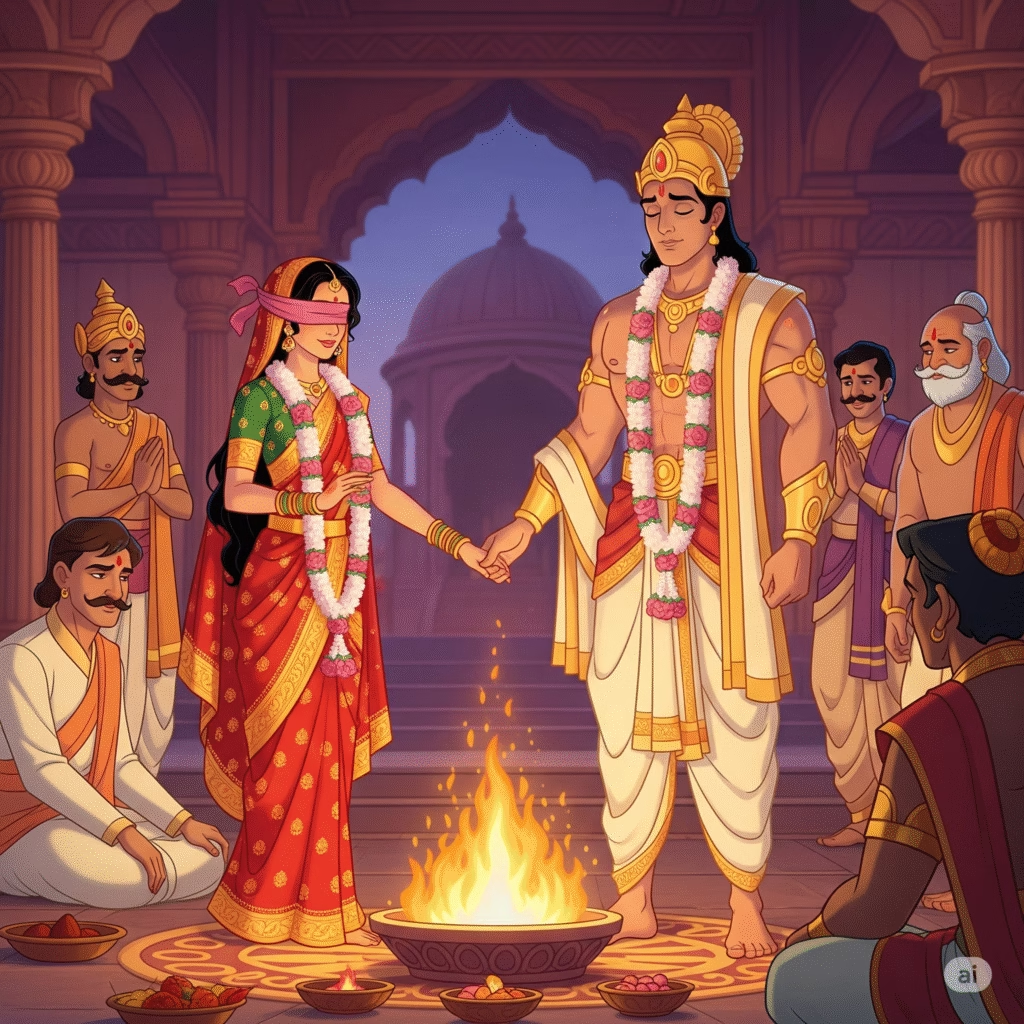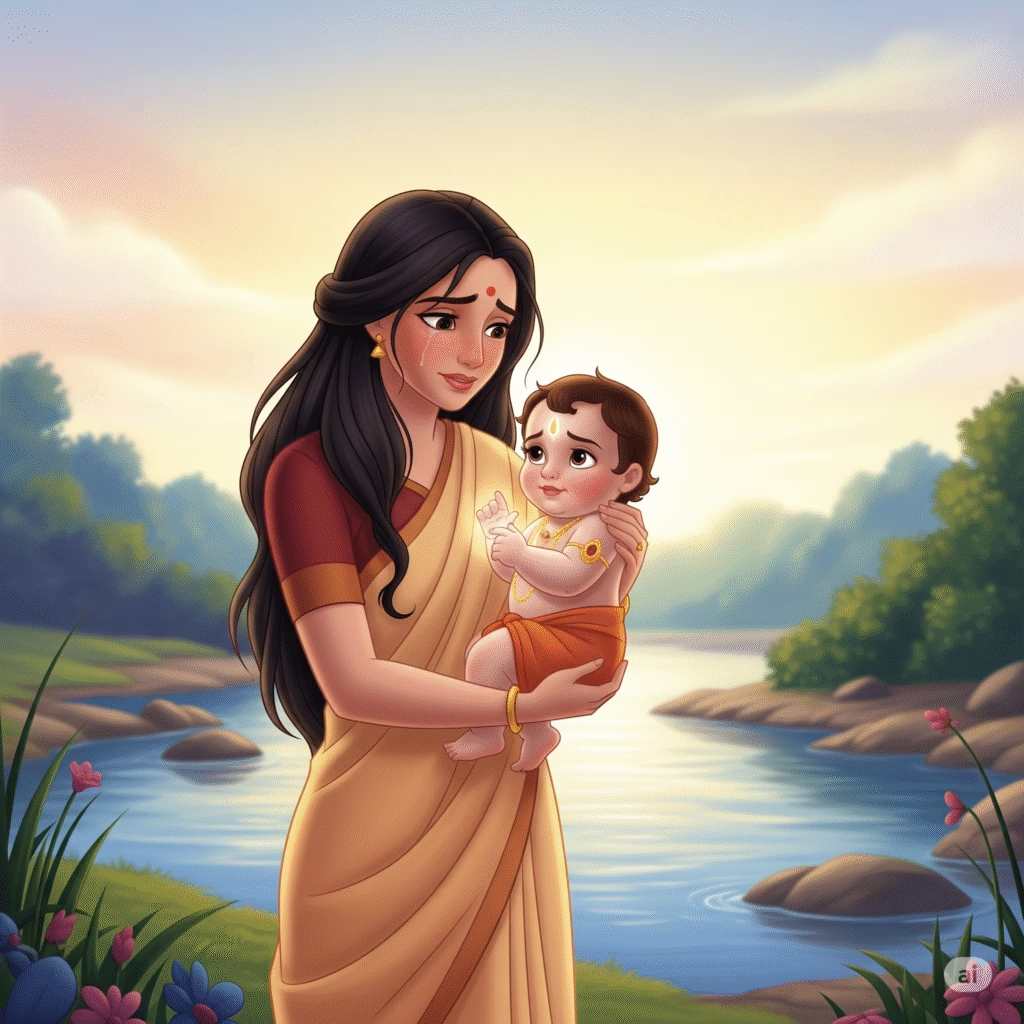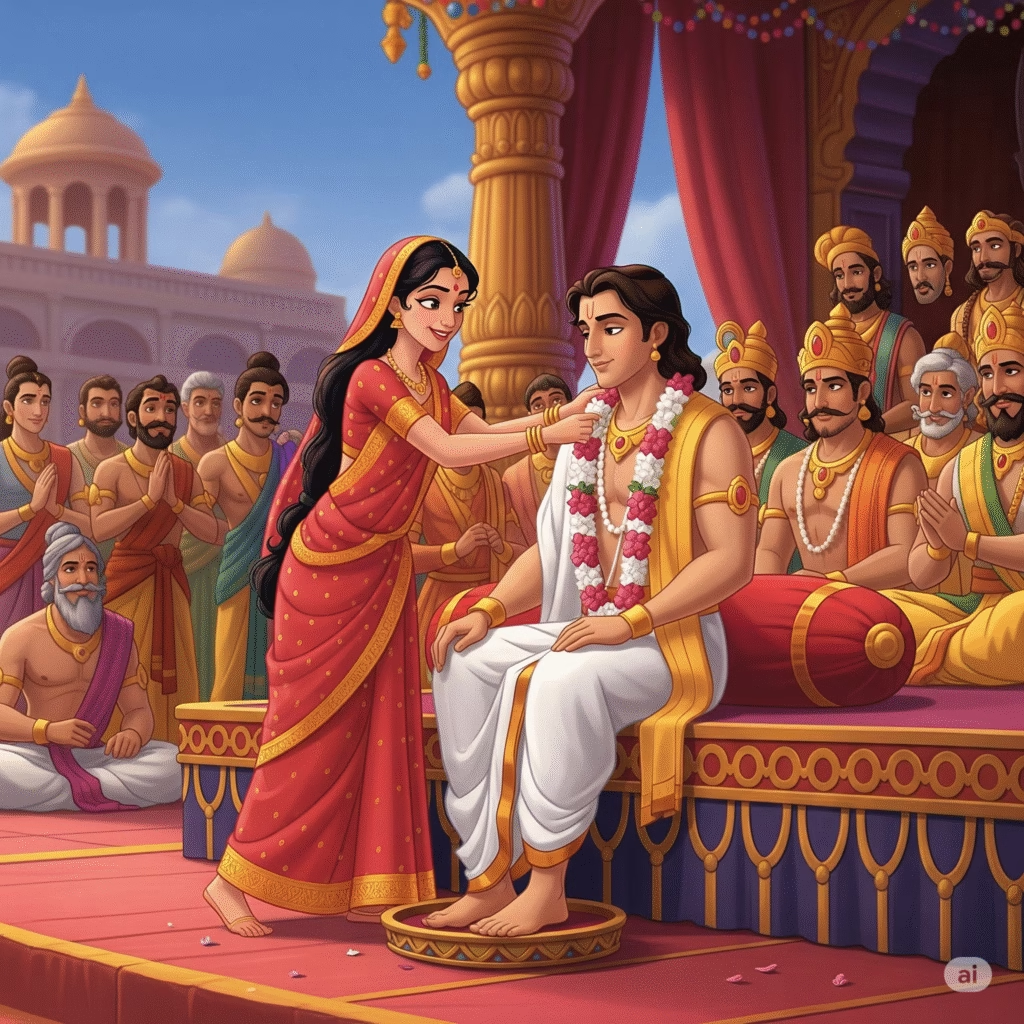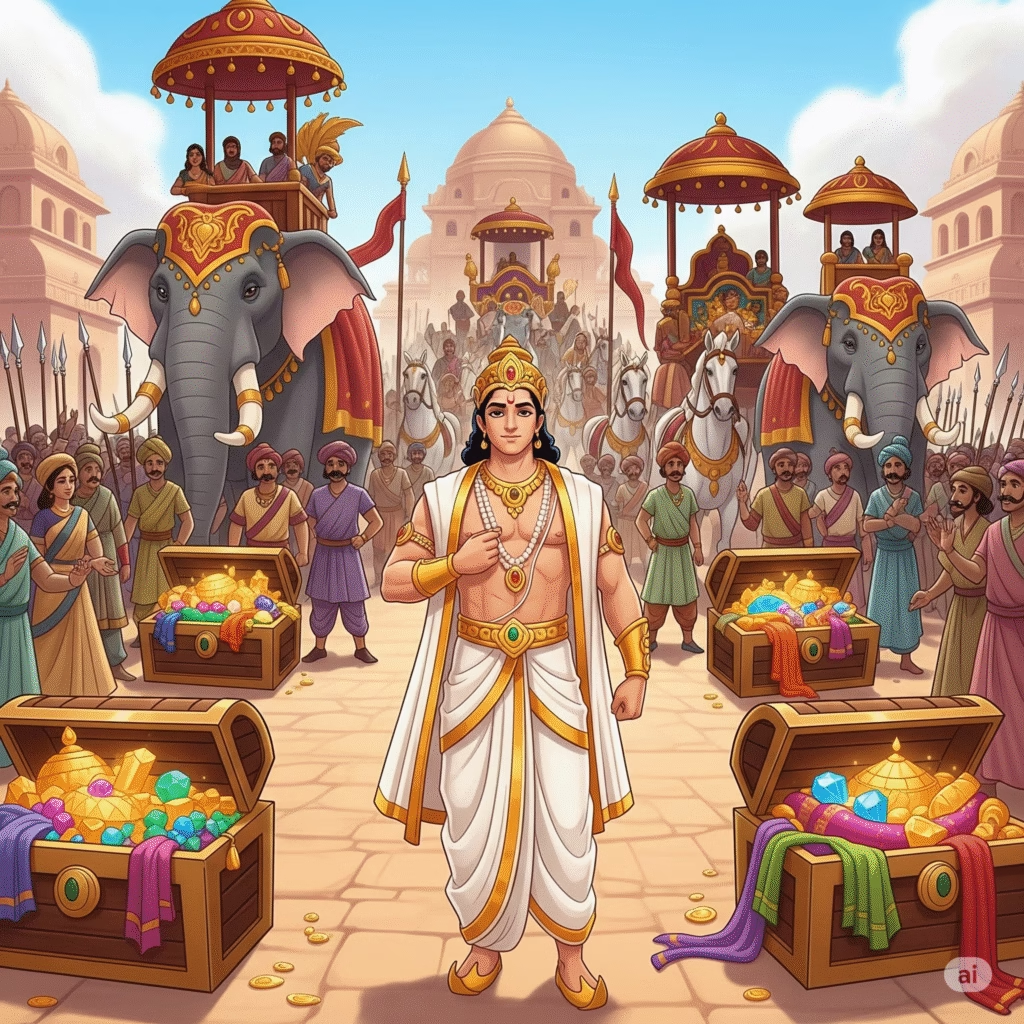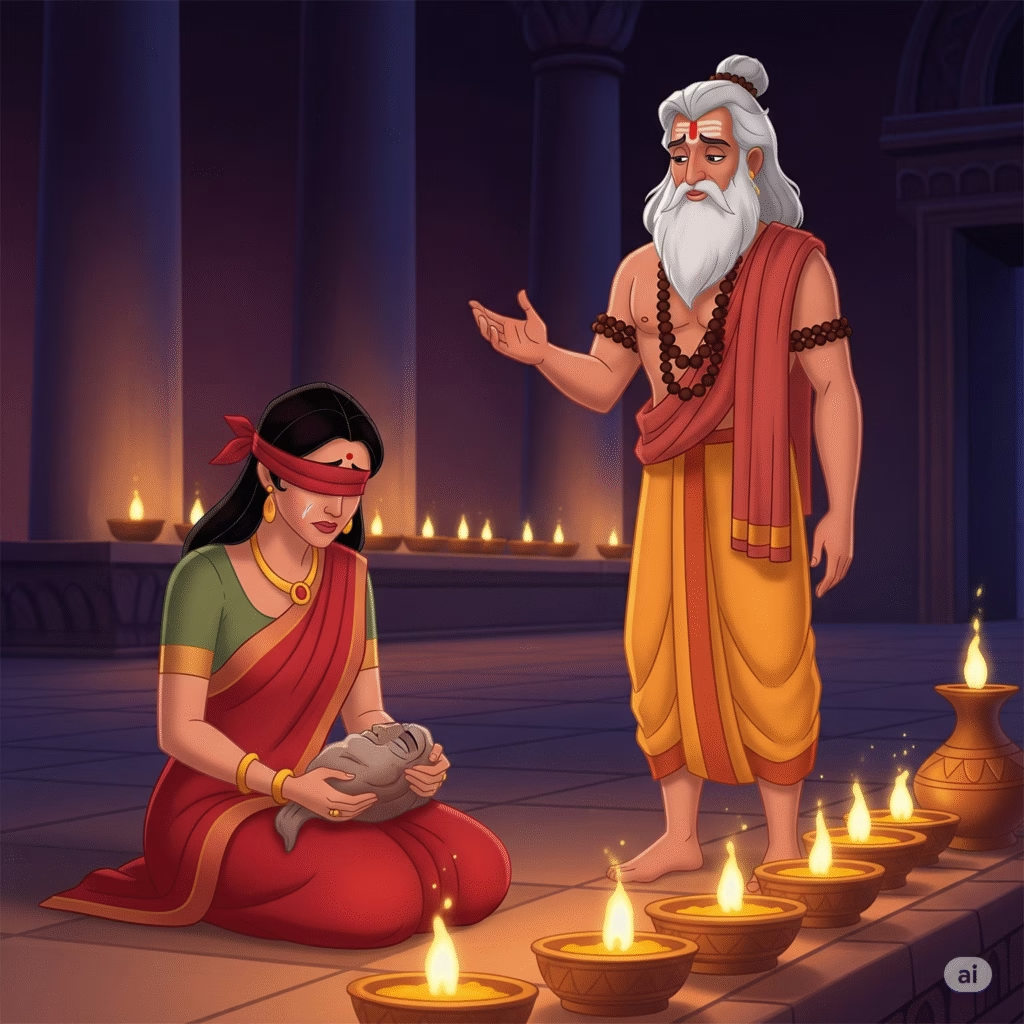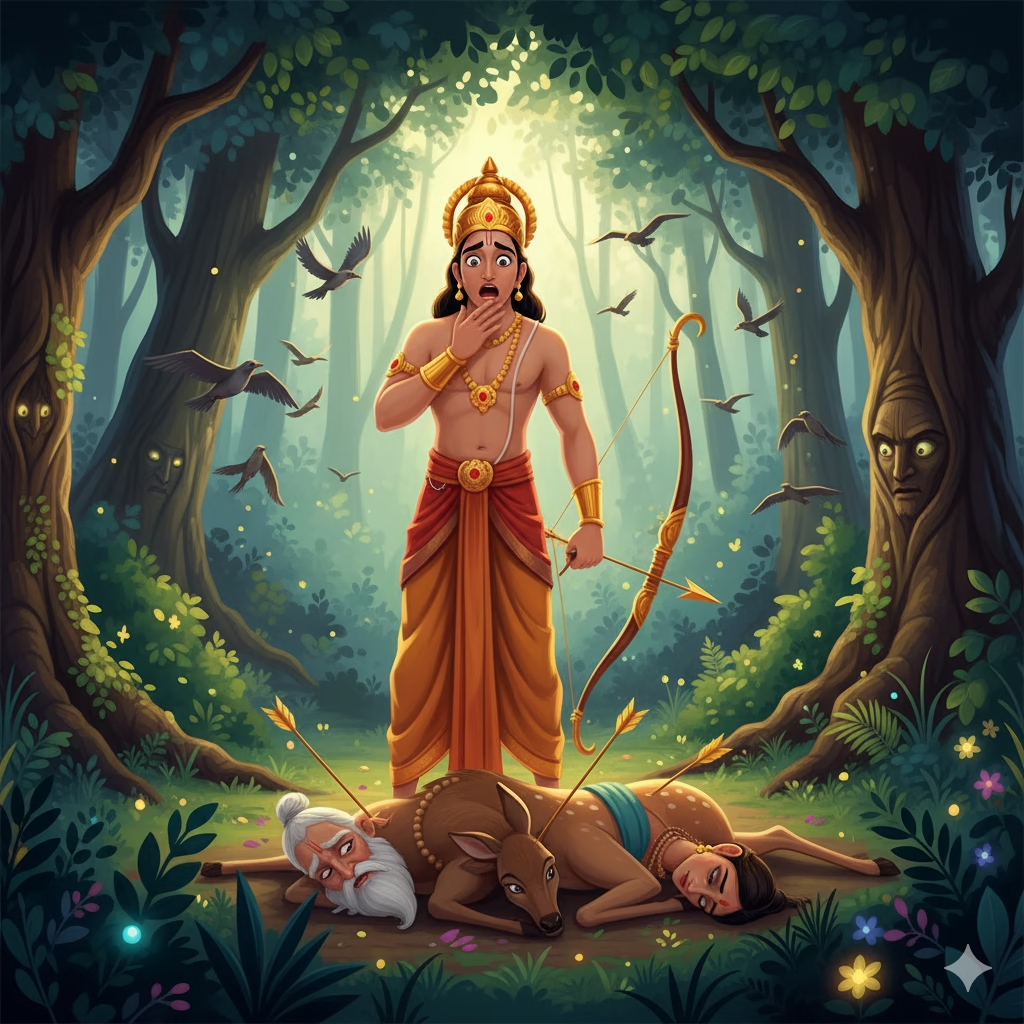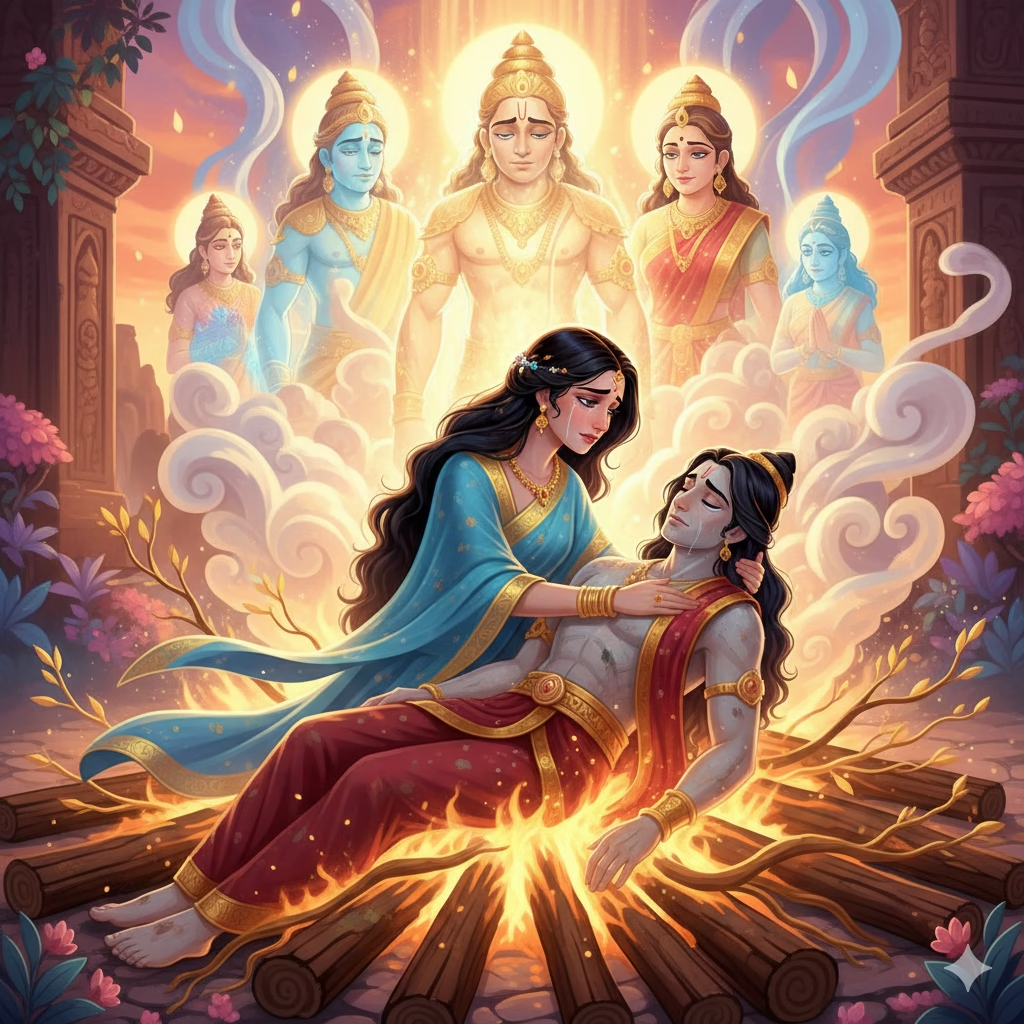In the previous blog, we witnessed Mahabhisha, a king of great merit, cast from heaven not for violence or deceit but for a moment of uncontained desire as he looked upon Ganga in Brahma’s celestial court. That glance, gentle yet uncontrolled, cost him his celestial seat. Ganga, too, though composed, was bound by a similar curse. Thus began a journey where desire and detachment wrestled for dominion over fate. Desire may begin with a glance, but where it leads depends on the vows we take—and the ones we break. After Mahabhisha and Ganga’s fall from heaven, the story descends to Earth, where dharma is not declared in celestial courts but tested silently between one’s decisions.
In the still hush of dusk, on the banks of the sacred Ganga, the noble King Pratipa of the Kuru dynasty sat in steadfast meditation. His body was unmoving, his mind focused, and he was immersed in the timeless rhythm of japa, aligned with cosmic dharma and stillness.
Just then, from the gentle currents of the river, emerged a form—radiant, divine, and beyond comparison. It was Ganga, the celestial river goddess herself, who had taken on mortal beauty. Clad in flowing silver and white garments, her presence shimmered like moonlight on the water. With deliberate grace, she walked towards the meditating king and sat upon his right thigh. She then said to the king, “O King, I desire you; take me as your wife.”
Pratipa, though startled, remained composed. “O lady,” he replied, “I cannot accept your proposal. I am already committed to dharma, and besides, I am in the final stages of my life. To desire a woman at this age, when duties of renunciation begin, would be adharmic.” But, he added, noting her unearthly beauty and undeniable presence, “You may become the wife of my future son.” The lady smiled. “Then so be it,” she said.
Now, this gesture of Ganga may seem bold, even seductive to modern readers. But the beings who are from the dimension or realm above us are not trapped in material and physical desires like us humans. Their every act holds a deep meaning, sometimes something above our common and usual knowledge of right and wrong. This act of Ganga was, in fact, deliberate and sacred. At that time, King Pratipa was deep in meditation, and Ganga’s act likely was to gently awaken him from his spiritual absorption. At the same time, Ganga also had to ensure that without any questions being asked and without any delays, Ganga convinced King Pratipa to give birth to a son and also ensures that this son of his marries Ganga in the future without asking her any questions about her identity. Ganga was not seducing; she was summoning. She was invoking the king’s karmic readiness. Pratipa was a man of Dharma, not a man of impulse. Ganga knew that only a spiritual jolt, not flirtation, could wake him from dhyana to karma because Pratipa, due to his old age, had surrendered himself to dhyana, but this act of Ganga forced him to perform the karma of giving birth to a son. (Because Mahabhisha, in the celestial world, chose Pratipa as his father in the mortal world.) So she became the jolt, a divine intervention. Importantly, she did not choose the left thigh (which symbolizes sensual partnership) but instead sat on his right thigh—the place reserved for daughters and daughters-in-law. In doing so, Ganga made it unmistakably clear that she was not seeking union with Pratipa himself, but with his lineage. This choice was brilliant. Not only did it maintain dharma, but it also allowed her to fulfill her divine mission of birthing the Vasus through her future son, Shantanu. Ganga’s act, far from being impulsive, was an act of conscious alignment with karma and cosmic necessity. She reminds us that when our purpose is clear, our methods, too, must be precise—rooted in wisdom, not desire.
Years passed. King Pratipa begat a son named Shantanu—a luminous soul born of penance, dharma, and the blessings of divine grace. Shantanu became a mighty king himself—gentle in heart, fierce in battle, and just in rule.
One day, while riding through a forest on a hunt, King Shantanu encountered a woman of breathtaking beauty. She seemed neither human nor fully divine. She was draped in simple silks, adorned with delicate ornaments. Her body was radiant, and her eyes were like storm-tossed waters. The king was mesmerized, as if caught in a dream he did not want to wake up from. He asked her, “Are you a goddess,” a celestial being, or a mortal maiden? Whoever you are, be mine. Become my queen.”
The lady looked at him softly, knowingly, and replied, “I shall become your wife, O King, but on one condition: you must never question me.” Never ask me who I am nor what I am doing. If you do, I shall leave you there and then.”
Blinded by desire and entranced by love, Shantanu agreed. And so began their strange yet intense union. The queen became everyone’s favorite, including her subjects. She was divine when it came to lovemaking, and Shantanu was completely mesmerized by her acts of love. In time, the queen bore a child. To Shantanu’s horror, she took the newborn to the banks of the river Ganga and drowned the child in the river without a trace of grief or guilt. Shantanu, bound by his vows, said nothing. This happened six more times—seven sons were born, seven sons drowned!
When the eighth child was born, Shantanu could no longer remain silent. Tormented and confused, he cried out, “Stop this right now! Who are you? Why are you killing our own children? What sort of woman commits such an act?”
At this outburst, the queen stopped. A profound sadness clouded her eyes, but her tone remained steady. “I am Ganga. I came here because I was once bound by a curse—to be born as a human and to bear the eight Vasus, who too were cursed to live in the mortal world. I released them from their earthly bonds by drowning them at birth. Thus, each one eventually returned to its divine form. But the last one—the eighth child—whom you stopped me from drowning shall live. He will be called Gangadatta (the one given by Ganga). He will be wise, just, and unmatched in valor. But you will lose me, for you broke your word.”
Isn’t love in the mortal world a little confusing? Or are we blurred by the idea of it in our heads? Shantanu’s silent suffering and Ganga’s mysterious actions each symbolize how our desires can often blur our moral clarity. We make promises under the influence of love and longing, or maybe greed to be taken care of, only to discover later the weight of our actions and decisions taken in the moment of desire.
Ganga’s character is not a villain but a purifier—of destinies, of karmic debts, and even of illusions. She reminds us that sometimes the actions of the universe might appear cruel on the surface but hold a deeper mercy underneath.
Journaling Prompts
- Have you ever fallen in love with someone out of desire in the moment, only to struggle with the conditions it came with later?
- What promises have you made in the heat of the moment that need to be seen again through the lens of dharma?

